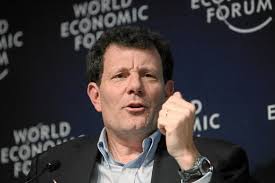Nicholas Kristof [1959-0] American    
Rank: 101
Journalist
Nicholas Donabet Kristof is an American journalist, author, liberal / progressive op-ed columnist, and a winner of two Pulitzer Prizes. Education, Car, Equality, Family, Finance, Parenting, Pet, Politics, Positive, Technology, Travel |  |